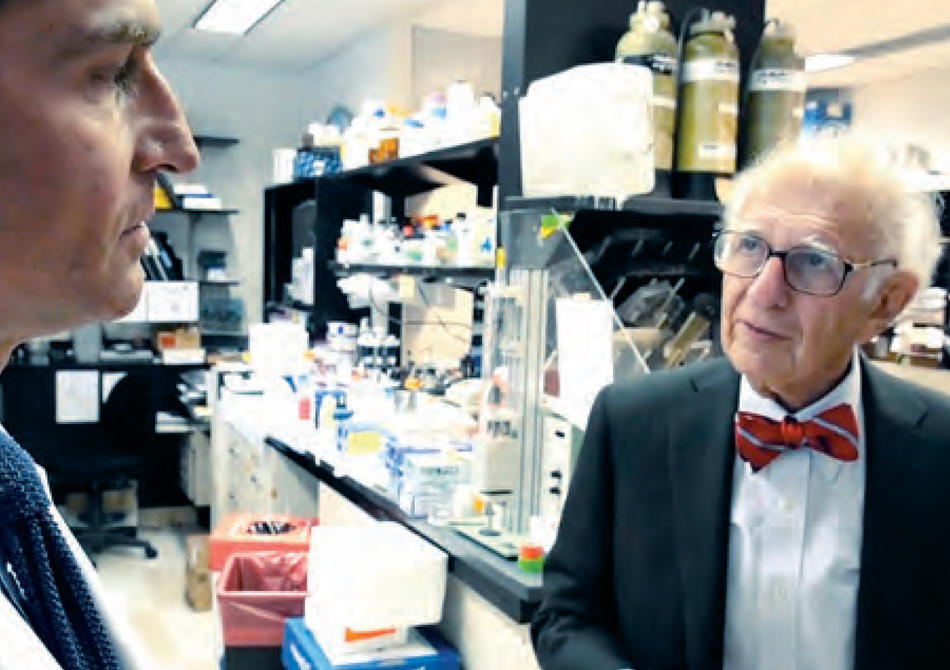Columbia scientists say they have found the strongest evidence yet that the forgetfulness many people experience in old age is distinct from Alzheimer’s disease and other forms of dementia. More remarkably, they say it may be reversible.
“We have treatments for mice that work extremely well, and there’s no reason why that wouldn’t work in people, if we worked hard enough on it,” says Eric Kandel, the Nobel Prize –winning Columbia neuroscientist who led the research team.
The researchers say their discovery, even if it does not lead to a memory pill, could one day help clinicians tell patients if their misplaced keys, forgotten birthdays, and missed appointments are merely senior moments rather than the signs of something worse. They say this could alleviate anxiety for countless middle-aged and elderly people.
“I think this really sets the stage for developing better diagnostics and better interventions to try to ameliorate age-related memory decline, versus Alzheimer’s,” says Scott Small, a Columbia neurologist who was the joint senior author of the paper, which appeared in the August 28 issue of the journal Science Translational Medicine.
Forty years ago, scientists assumed that almost everyone with a spotty memory was in the early stages of dementia. This is now known to be untrue: whereas one in eight people over the age of sixty has memory problems, only half as many have a serious brain condition like Alzheimer’s disease, with its sticky plaques and fibrous tangles that gum up communication between neurons, or vascular dementia, with its bursting of blood vessels in the brain. Until now, however, scientists have been unable to say why people who are free of such conspicuous pathologies nevertheless see their mental faculties decline.
A clue came a few years ago, when studies showed that a part of the brain called the dentate gyrus, which was known to be involved in the formation of new memories, was especially vulnerable to aging. This was a different part of the brain than is initially attacked by Alzheimer’s.
To determine if a breakdown of the dentate gyrus was behind common memory loss, the Columbia scientists inspected brain samples from deceased people aged thirty-three to eighty-eight whose organs were donated to science. The analysis revealed that as we age, the dentate gyrus is prone to slowing down its production of a protein named RbAp48. When the scientists genetically programmed mice to make less of this protein, the results were dramatic: even young, healthy mice lost their way in mazes and performed worse on object-recognition tests.
The most exceptional part of the research was still to come. It involved a different set of subjects: old mice that had naturally become forgetful. To see if these rodents’ flagging minds could be propped up, the scientists employed a technique called viral gene therapy to switch on a gene that controls production of RbAp48. The scientists were astonished to find that when the RbAp48 was restored to a healthy level, the old mice regained their youthful acuity.
“I didn’t expect that,” says Elias Pavlopoulos, a Columbia neuroscientist and the paper’s lead author. “That was a surprising finding.”
The Columbia scientists say they are now determined to find a safe way to stabilize RbAp48 levels in people. They are motivated, they say, by the news that low levels of RbAp48 seem not to cause irreparable damage in the brain.
Another fact that bodes well for the prospect of treating memory loss in humans is that RbAp48 uses a chemical pathway that is already well known to scientists. Previous studies have shown that certain experimental drugs enhance this pathway’s function and thereby improve cognition in mice.
“Now we have a good target, and with the mouse we’ve developed, we have a way to screen therapies that might be effective,” says Small.



